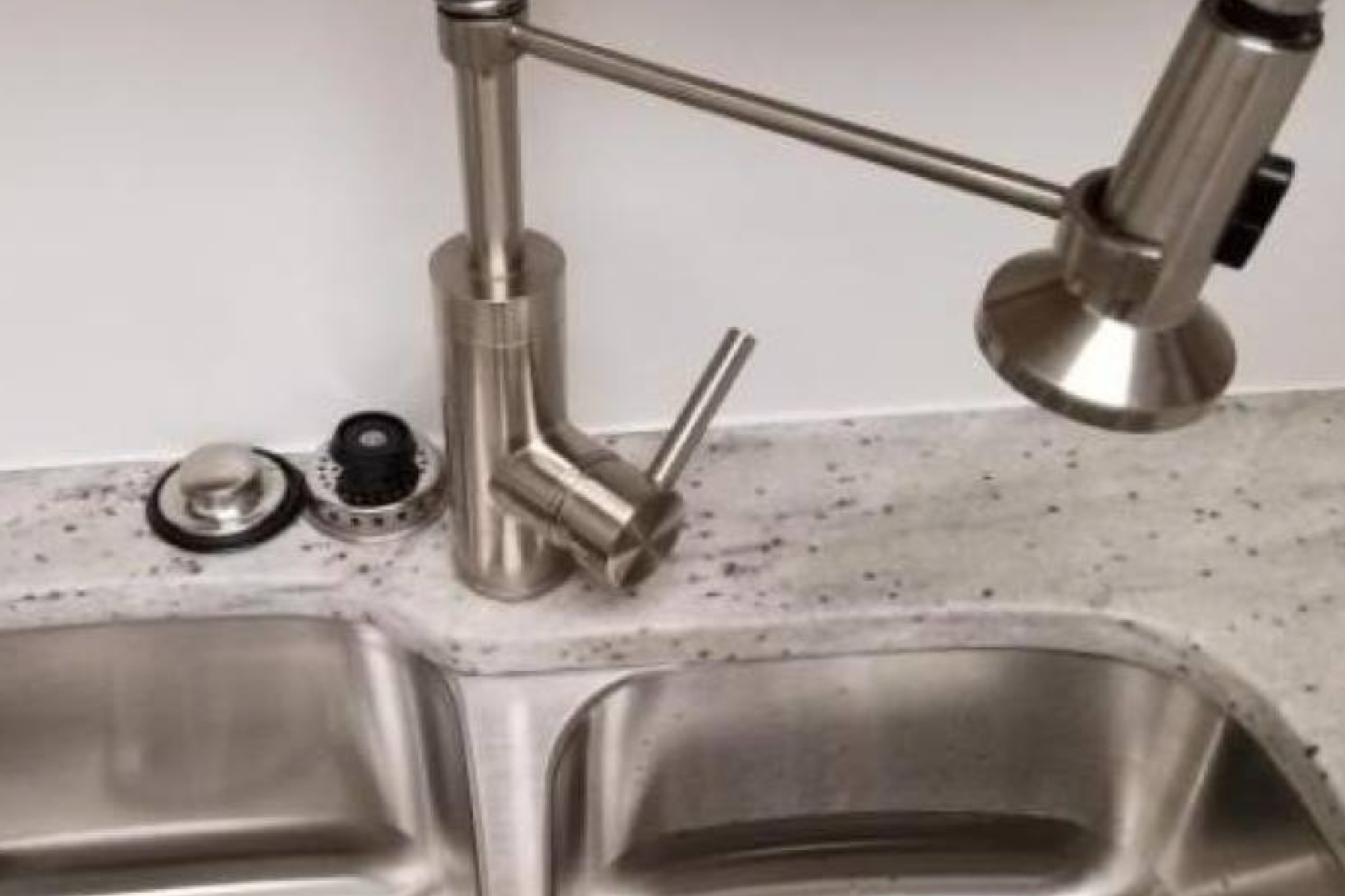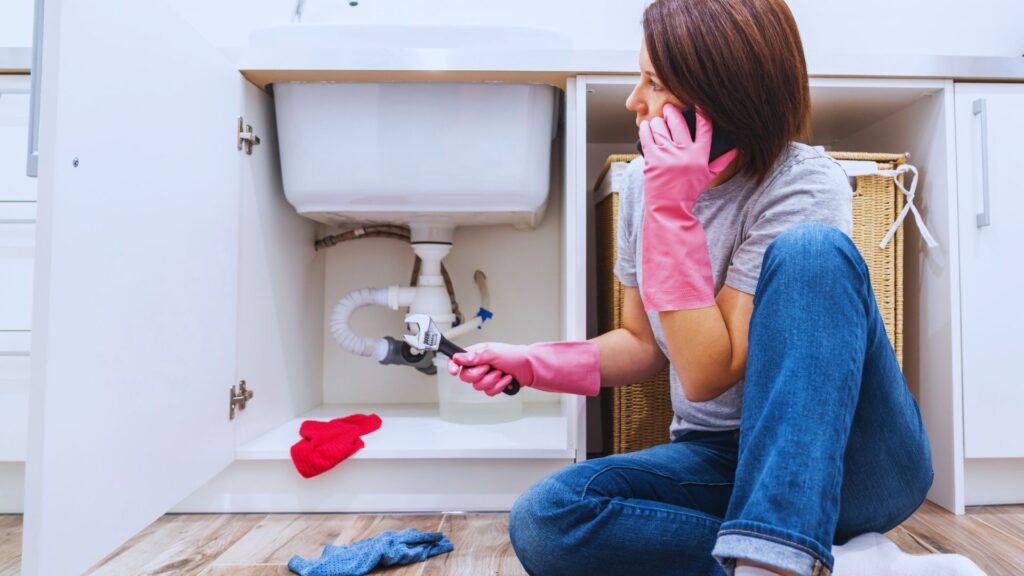Yes, your kitchen plumbing might be costing you money without your knowledge. Hidden leaks, inefficient appliances, and hard water can all contribute to escalating water bills and costly repairs. Even a dripping faucet can waste thousands of gallons of water per year. Faulty garbage disposals and harsh drain cleaners can damage pipes, leading to additional expenses. If you notice sudden spikes in water usage, damp spots under sinks, or slow drains, it’s crucial to address these issues promptly. Stick around for more useful tips to help prevent common plumbing issues from putting a strain on your budget.
Key Takeaways
- Hidden leaks in kitchen plumbing can lead to significant water waste and increased bills.
- Outdated appliances and faulty garbage disposals can contribute to inefficiency and hidden pipe damage.
- Slow drains from grease buildup can affect sink efficiency and lead to costly repairs.
- Hard water can cause mineral build-up in pipes, reducing efficiency and leading to expensive repairs.
- Neglecting regular maintenance, such as drain cleaning and moisture checks, can escalate small issues into costly repairs.
Hidden Signs of Plumbing Issues
While you may not see them, hidden plumbing issues could be quietly draining your wallet. Hidden plumbing leaks, particularly in your kitchen, can be stealthy culprits. They’re out of sight, often buried behind walls or beneath flooring, and can slowly sap your finances.
A dripping faucet might seem like a minor annoyance, but did you know a single leak can waste up to 3,000 gallons of water per year? That’s enough to take over 180 showers! Not only is this bad for the environment, but it’s also harmful to your wallet.
Similarly, leaks under your sink or behind appliances can go unnoticed for a long time, causing water damage and skyrocketing your water bill. If you notice a sudden increase in your water usage or damp spots appearing in your kitchen, there’s a good chance you’re dealing with a hidden leak.
The key to combating these kitchen plumbing problems is early detection and swift action. Regularly check under your sink, around your dishwasher, and fridge for signs of moisture or mold.
If you find any, it’s time to call a professional plumber.
Common Kitchen Plumbing Problems
Beyond the hidden leaks, several common kitchen plumbing problems can silently take a toll on your finances.
Outdated appliances, for instance, can have high water bills due to their inefficient water usage. Your antiquated dishwasher might be consuming more water than necessary, quietly padding your bill.
Faulty garbage disposals are another culprit, often leading to pipe damage that’s not easy to spot. A poorly installed disposal can leak or cause blockages, both of which can be expensive to fix.
Then there’s the slow drain, often caused by grease buildup. This not only dampens the efficiency of your sink but could potentially lead to pipe damage.
While it’s tempting to pour a chemical drain cleaner down the sink, avoid it. These cleaners can harm your pipes, leading to further expenses down the line.
The Real Cost of Leaky Faucets
You may not realize it, but a single leaky faucet in your kitchen could significantly increase your water bill. According to the Environmental Protection Agency, a faucet dripping once per second can waste thousands of gallons of water per year—equivalent to hundreds of extra showers!
The cost adds up quickly. Even a slow drip can lead to unnecessary water waste, and a faster leak can cause even greater losses over time. That’s money quite literally going down the drain.
Fixing a leaky faucet isn’t usually a massive task. It’s often as simple as replacing a worn-out washer.
Are you not sure how to fix it? There are plenty of online tutorials to guide you. However, if you’re uncomfortable with DIY repairs or the faucet continues leaking after your attempt, it’s best to call a professional kitchen plumbing service to prevent further issues.
While hiring a plumber costs money, it’s typically less than what you’d spend on wasted water over time. So, don’t let a leaky faucet drain your wallet—fix it as soon as you can.
Impact of Hard Water on Plumbing
Another factor that could sneakily hike up your plumbing costs is hard water. You mightn’t realize it, but this common household issue can wreak havoc on your plumbing system.
Hard water, high in minerals such as calcium and magnesium, can lead to build-up in your pipes and appliances, reducing their efficiency and lifespan.
Think about your coffee maker. Have you ever noticed a chalky residue inside? That’s a sign of hard water. Your pipes are no different. Over time, that residue builds up, narrowing the pipes and making it harder for water to flow. This puts strain on your kitchen fixtures, making them work harder and wear out faster.
But it’s not just your pipes that suffer. Your dishwasher, your faucets, and even your pots and pans can bear the brunt of hard water. The build-up can damage these appliances, leading to costly repairs or replacements.
Regular Maintenance: A Cost Saver
Despite the potential damage, regular maintenance can be a real cost-saver for your kitchen plumbing. Just like with your car, routine check-ups can prevent small issues from escalating into larger, more expensive problems.
First, regularly examine under your sink and around appliances for signs of moisture or mold, which might indicate a slow leak. A dripping faucet might seem harmless, but it can add up to a significant waste of water and a higher bill. So, make certain you fix these minor leaks promptly before they worsen.
Next, pay attention to your drains. Avoid disposing of grease in the sink, as it can lead to grease buildup and slow drainage. Regularly clean your drains to prevent hidden blockages that could result in costly plumbing emergencies.
Also, consider upgrading to water-efficient fixtures like low-flow faucets and aerators. They might involve an initial investment, but the long-term savings on your water bill will be worth it.
Professional Help: When to Call?
When should the DIY approach give way to professional intervention? Many homeowners grapple with this question. They don’t want to spend unnecessarily, yet they also don’t want to risk serious damage.
Here’s some practical advice: Call a pro when you’re out of your depth.
Despite your best efforts, persistent low water pressure can indicate a bigger issue that requires a plumber’s expertise. If a leak continues after you’ve tried to fix it, it’s wise to get a professional involved.
Don’t let a minor problem become a major one because you’re too stubborn to seek help.
Major plumbing repairs certainly aren’t DIY territory. If you’re dealing with pipe replacement or a total overhaul of your kitchen plumbing, you need a professional.
Your kitchen’s plumbing system is complex, and messing with it without proper knowledge can lead to disasters.
In Summary
Don’t let hidden kitchen plumbing issues drain your wallet. Catch those sneaky leaks, deal with hard water, and avoid DIY blunders. Remember, regular maintenance is your best friend, potentially saving you hefty repair costs.
At Pipe It Up, we specialize in kitchen plumbing services in Greenwood, helping homeowners prevent costly plumbing mishaps. Whether it’s fixing leaks, improving water efficiency, or handling complex repairs, we’ve got you covered. Be proactive in tackling these issues, and you’ll keep those water bills down while ensuring your kitchen plumbing stays in top shape. Your kitchen, your budget, and your peace of mind will thank you!




